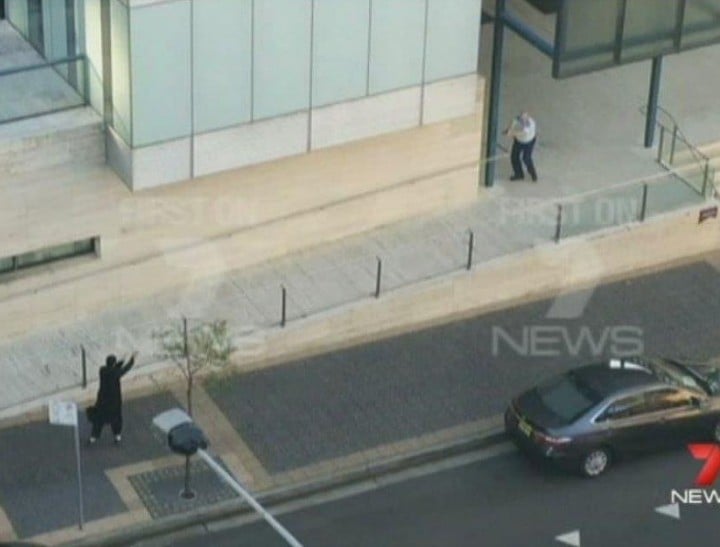
Recent attacks including the Parramatta shooting suggest “suicide terrorism” may have arrived in Australia, which would make the threat even more dangerous and difficult for security agencies, writes Nick O’Brien.
By Nick O’Brien
Many people associate suicide terrorism with a bomber blowing him or herself up with an improvised explosive device and killing others in the process.
A US study of suicide terrorism known as the “Chicago Project” describes a suicide attack as “an attack in which an attacker kills himself or herself to kill others”.
However, the Collins dictionary describes a suicide attack as “a terrorist attack which someone undertakes knowing that he or she will die in the attack”.
I would argue that this definition more accurately describes a suicide attack. If you accept the second definition, Australia has seen both planned and actual suicide attacks. It is important because suicide attacks are more difficult for the police to deal with as the attacker wants to die, unlike a more conventional murderer who wants to escape.
An example of this kind of attempted suicide terrorism occurred in the UK in 2013 when a soldier, Lee Rigby, was hacked to death by two attackers who then stayed at the scene, charging at armed police when they arrived and subsequently being shot although not killed.
In the case of Islamist terrorism, suicide attackers believe that they are going to get a number of benefits when they die, including going straight to paradise, being able to intercede to get 70 members of their family to heaven and of course the much talked about 72 virgins.

Top Comments
To be a Muslim you have to believe that Mohammed is God's messenger. Here is what Mohammed says to his followers:
Qur'an: [9:5] "But when the forbidden months are past, then fight and slay the unbelievers wherever ye find them, and seize them, beleaguer them, and lie in wait for them in every stratagem (of war); but if they repent, and establish regular prayers and practice regular charity, then open the way for them: for God is Oft-forgiving, Most Merciful."
Qur'an: [9.123] "O you who believe! fight those of the unbelievers who are near to you and let them find in you hardness; and know that Allah is with those who guard (against evil)."
Qur'an: [4.74] "Therefore let those fight in the way of Allah, who sell this world's life for the hereafter; and whoever fights in the way of Allah, then be he slain or be he victorious, We shall grant him a mighty reward."
Qur'an: [4:95] "Not equal are those believers who sit (at home) and receive no hurt, and those who strive and fight in the cause of God with their goods and their persons. God hath granted a grade higher to those who strive and fight with their goods and persons than to those who sit (at home). Unto all (in Faith) Hath God promised good: But those who strive and fight Hath He distinguished above those who sit (at home) by a special reward,-"
Qur'an: [8.12] " When your Lord revealed to the angels: I am with you, therefore make firm those who believe. I will cast terror into the hearts of those who disbelieve. Therefore strike off their heads and strike off every fingertip of them."
So who has been teaching teenagers that the Qur'an is the perfect word of God?
I am an unbeliever. Whose silly idea was it to bring into Australia, people who follow a religion that calls for them to fight me?
Of course, Christians don't do everything that Christ advises. Even when a majority of Australians perceived themselves to be Christians, few of them gave away their possessions to anyone who demanded them. But it wouldn't matter if they did, would it?
Nevertheless, there are still many Christians who try hard to emulate Christ, so we must expect that there will always be Muslims who will try to emulate Mohammed.
And yes, I have read the Old Testament, and know that its teachings have been superseded by the teachings of Christ and his apostles. Except for the Ten Commandments (the Law), which Jesus re-iterates.